No matter the age or stage of a student, when learning at St Mary's, their experience will be developed around four key opportunities:
PURPOSEFUL LEARNING
POSITIVE RELATIONSHIPS
REALISING POTENTIAL
BUILDING WELLBEING
These core beliefs are held in esteem by all teaching and support staff. They are forefront in our minds when we plan all learning opportunities, and provide staff, students and families with practical, relevant strategies to follow so that St Mary's children can fulfill their call to let their light shine as living witnesses to the Gospel values.
Purposeful Learning
At St Mary's, we learn best when we are engaged in learning that's relevant, challenging and enables meaningful connections to life. By being inquiring learners, we come to a greater understanding of ourselves, our world and our relationship with a loving God.
To best engage in Purposeful Learning:
Teachers will:
|
Families will:
|
Students will:
|
Positive Relationships
At St Mary's, we believe learning is a human endeavour. Positive relationships support learners as they take risks, develop ideas, master skills and build knowledge of self and others. Inspired by the model of Jesus in community, teachers, students and parents build partnerships and connections for learning.
To best experience Positive Relationships:
Teachers will:
|
Families will:
|
Students will:
|
Realising Potential
St Mary's students learn best when they expand and challenge current ideas, interests and skills. Feedback, informed by assessment, helps us to shape future learning. Maintaining high expectations and a belief that all will be successful learners, supports the realization of our God given individual and collective potential.
To best realise potential:
Teachers will:
|
Families will:
|
Students will:
|
Building Wellbeing
Successful learning is enhanced when the whole school strives to use positive self-talk, self-reflection and resilience to build wellbeing. In a safe environment, learners take on and persist with challenges, knowing they will be supported and encouraged. This creates a space for human flourishing and witnessing of Gospel values.
To build wellbeing:
Teachers will:
|
Families will:
|
Students will:
|

